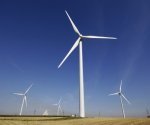Avoid the Common Pitfalls of Green Investments



Green investments are growing in popularity. From Wall Street analysts to the media and celebrities, people want to be recognized as being "green".
The original focus was to reduce, reuse, and recycle. That focus spawned a new growth industry centered on protecting our environment.
Some investors choose to contribute to the cause by investing in companies that are environmentally responsible; those that are taking steps to reduce their impact on the environment or who are actively pursuing technologies to improve environmental conditions.
Unfortunately, like most new industries, there is a lot of "misinformation" out there due to the fast-paced nature a new market. This makes it very easy to get lost.
And for those who are lost, there are always people looking to cash-in using scams.
Scammers usually try to take advantage of current headlines to draw money into their schemes.
For example, the 2010 oil spill in the Gulf of Mexico drove an big increase in the number of fake, green investments based on "oil cleaning" technologies.
But you're ready to avoid all the noise.
You've already learned the principles of investing safely, how to start investing via a process, and to limit your risks using personal money management.
So in order to "green" your portfolio the safe way, read on and educate yourself on the potential opportunities in this growing segment.
What are Green Investments?
The definition for green investments is fairly loose and covers a wide variety of potential investments.Basically, they are an investing instrument based on pollution reduction technology or renewable energy.
This "gray area" is a major reason that scammers can claim they are legitimate.
The best advice is to do your homework. Below is a list of potential categories that can help you narrow down your options.
- Alternative Transportation Technology
- Battery Technology
- Bio-diesel Energy
- Bio-fuel Energy
- Biomass Energy
- Coal-To-Liquids Technology
- Efficient Vehicle Technology
- Electric Grid Technology
- Electricity Storage Technology
- Energy Efficiency Technology
- Ethanol Energy
- Fuel Cell Technology
- Geothermal Energy
- Hydroelectric Energy
- Hydrogen Energy
- Microturbine Technology
- Natural Gas Energy
- Natural Gas (CNG) Vehicle Technology
- Nuclear Energy
- Ocean Power Technology
- Pollution Control Technology
- Power Production Technology
- Smart Grid Technology
- Smart Transportation Technology
- Solar Energy
- Waste-to-Energy Recovery Technology
- Wind Energy
Why buy Green Investments?
Green investments have the potential to provide high growth, and are useful as part of a growth strategy.In this case, you'll be looking for companies that are fundamentally strong (you'll need to use some fundamental analysis techniques to figure this out) with an established track record of profiting from technology commercialization.
It is not enough to be innovative, or have your company splashed all over the media. Headlines will grab attention and some money from speculators, but safe investors need a little more substance.
A publicly traded company has information within their financial statements that will give you a good idea of whether or not the company can be profitable.
Publicly traded companies can and do run into trouble. Anytime you use a new technology in new ways, issues are going to pop up. The nature of innovation makes forecasting even 1 year into the future very difficult.
As stated on our home page, we are not in the business of predicting...only preparing. So there is some a risk of loss that needs to be addressed in your decision-making process.
On the subjective side, investors looking for socially responsible investments may also benefit from the satisfaction of owning investments that are helping the environment (or at least damaging it less).
Factors affecting price
In addition to the factors that affect all financial instruments (inflation, interest rates, economic policy, etc.), the prices of green investments can be influenced in interesting ways.New developments in the industry can impact the price of green investments differently. For example, the discovery of a new bio-fuel could put an ethanol fuel company out of business.
Government legislation can also have an impact. If subsidies are offered for specific technologies, a company could reduce operating costs (see our financial statement examples) resulting in higher earnings per share (or higher dividends).
For example, the government could decide to encourage the use of solar panels and offer incentives for consumers to install them in their homes. An increase in demand could then translate into an increase in the revenue for a solar panel company, increasing its stock price.
Investment Choices
Real Assets- Heat Pumps
- Solar Panels
- Wind Turbines
- Hybrid Electric and Electric Vehicles
- ETFs
- Mutual Funds
- Public Companies
Avoid scams by using the Better Business Bureau to investigate companies that sound too good to be true. Also, a fund's prospectus or company's annual filings can give you an idea of financial health.
As with any emerging industry, there are also a large number of private firms, funded by venture capital. If you are an accredited investor, these may also be of interest, but are beyond the scope of this site.
I've discovered an awesome website that lists companies operating in each category.
Check out www.altenergystocks.com today!
Where to buy?
Real assets can be purchased a local retailers like Home Depot, Lowe's, and other nation-wide, big-box stores. Smaller, specialty retailers may also be available in your area.Financial assets can be purchased from online and traditional brokerages. You will need to check the availability of green investments in each of your trading accounts.


